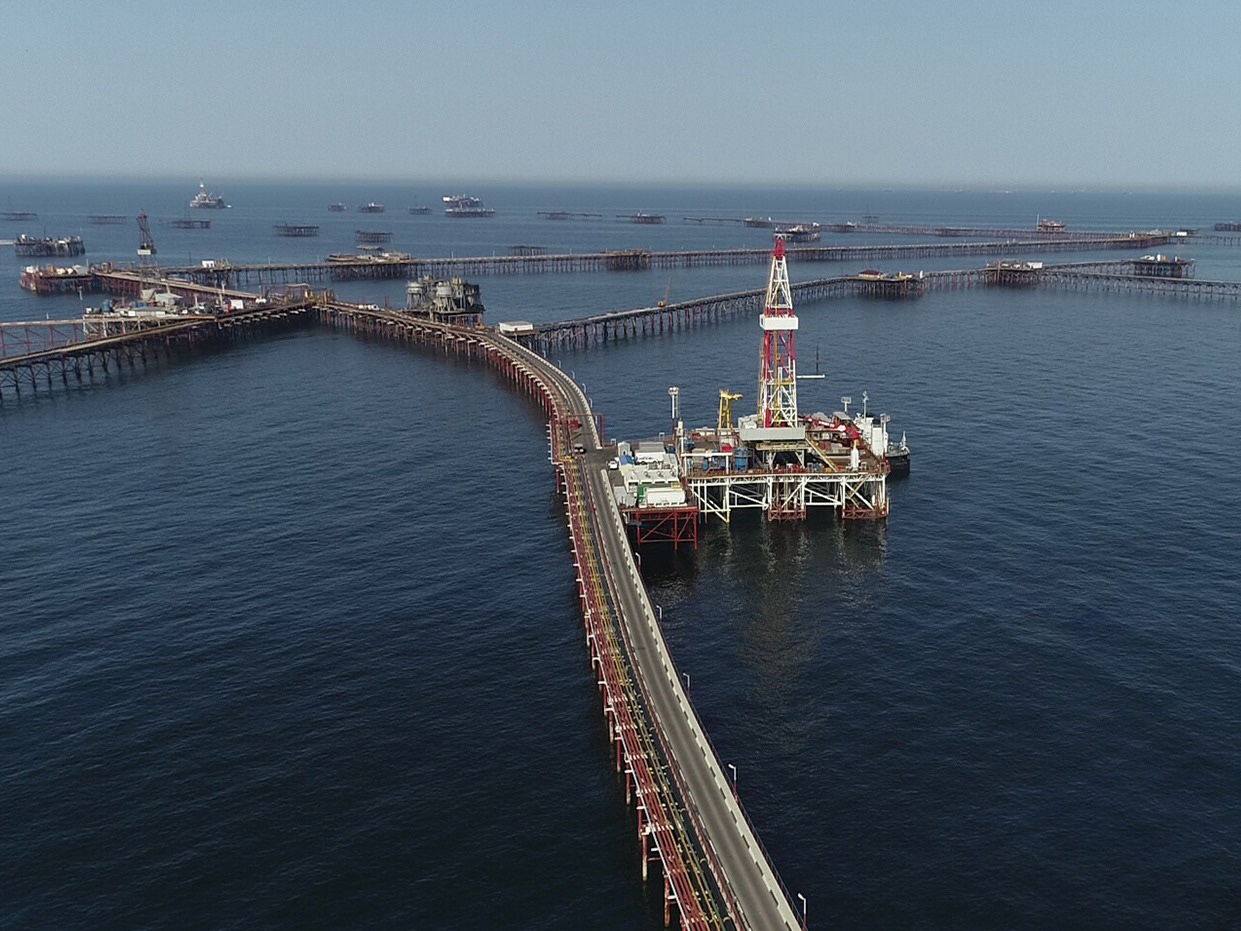Kazakhstan is increasing the shipment of crude oil through non-Russian routes, as part of its diversification strategy.
KazTransOil, the country's major oil transporter, disclosed plans to export 1.4 million tonnes of oil from the port of Aktau to the port of Baku by the year's end.
Citing a source from the energy company, Trend reported on Tuesday that the flow of Kazakh oil to the Baku International Sea Trade Port in Azerbaijan has surged by 12 times during the first eight months of the year.
In January-August, 2.164 million tonnes of Kazakh oil were transported for export from the port of Aktau. This denoted an increase of 759,000 tonnes, or 54 percent, over the same period the previous year.
Of the total, 520,000 tonnes come from the Tengiz field, 252,000 tonnes from the Dunga field, 1.385 million tonnes from the Buzachi Peninsula fields, and 7,000 tonnes from the Kashagan field.
The transportation of Kazakh oil for export to European markets through Azerbaijan increased on the back of a master agreement signed earlier between Azerbaijan’s SOCAR and Kazakh national energy company KazMunayGas.
The initial agreement between parties provides for transporting 1.5 million tonnes of oil annually from the Tengiz field, through the Baku-Tbilisi-Ceyhan pipeline.
In 2022, Kazakh President Kassym-Jomart Tokayev emphasized the significance of fully leveraging the potential of the Trans-Caspian International Transport Route (TITR), also known as the Middle Corridor, which stretches from China to Europe covering Central Asia and South Caucasus.
The Trans-Caspian route matters to Kazakhstan's economic security and has grown more important, as exports through Russian territory are becoming increasingly difficult due to the fallout from Moscow's Ukraine war.
The Middle Corridor has emerged as a key trade route between Europe and Asia, offering greater economic benefits and faster transit times for the landlocked countries in the region. The Baku International Sea Trade Port in Azerbaijan, Aktau/Kuryk ports in Kazakhstan, and Turkmenbashi Port in Turkmenistan are the primary maritime points on this route, which promises significant gains for regional trade.
Compared to the Northern Corridor, the Middle Corridor provides a more cost-effective and faster trade route, cutting down the travel distance by 2,000 kilometers. Additionally, the Middle Corridor passes through more favorable climate conditions and reduces travel time by 15 days compared to sea routes.
The Middle Corridor also presents immense opportunities for cargo traffic in Asia, enabling goods to reach the Middle East, North Africa, and the Mediterranean region by integrating port connections in Türkiye.
The strategic location of the Middle Corridor is expected to create significant economic opportunities, enabling South Caucasian and Central Asian countries to benefit from the $600 billion China-Europe trade annually.
The establishment of logistics centers and free trade zones at the ports of Azerbaijan, Kazakhstan, and Turkmenistan will facilitate the development and deepening of Trans-Caspian cooperation, thereby boosting regional economies. By leveraging the benefits of the Middle Corridor effectively, the countries in the region can reap the rewards of increased trade and economic growth.







 Azerbaijan and Armenia started the process of demarcation of their border on Tuesday, with the installation of the first border markers based on ge...
Azerbaijan and Armenia started the process of demarcation of their border on Tuesday, with the installation of the first border markers based on ge...
 Armenian sappers commenced on Monday mine-clearance operations in the territories adjacent to the Saint Mary Church in village of Voskepar (Armenia...
Armenian sappers commenced on Monday mine-clearance operations in the territories adjacent to the Saint Mary Church in village of Voskepar (Armenia...
 Iran and Pakistan have signed eight cooperation documents in various fields, and agreed to strengthen ties to fight terrorism in the region.
Iran and Pakistan have signed eight cooperation documents in various fields, and agreed to strengthen ties to fight terrorism in the region.
 President Aliyev emphasized the critical role of the North-South Transport Corridor in fostering transport cooperation between Azerbaijan and Russi...
President Aliyev emphasized the critical role of the North-South Transport Corridor in fostering transport cooperation between Azerbaijan and Russi...



